SEASON 02 | EPISODE 09
Pandora’s box
From a young age, Jordyn was led to believe they were a chronically ill child by their mother. Life-threatening asthma, organ removal attempts, and countless hospital visits became their horrific norm.
But everything changed in 2018 when Jordyn stumbled upon the concept of Munchausen by Proxy during a community college class. Suddenly, the veil of deception was lifted, and the true extent of their mother’s abusive behavior came into sharp focus.
As we explore Jordyn’s journey, we uncover the painful aftermath of confronting their mother’s manipulation and the ongoing trauma they continue to navigate. Jordyn illuminates how the deep bond between victims and their parents often shapes their very perception of reality, leading to a harrowing and profoundly destabilizing road to recovery.
Tragically, Jordyn’s story exemplifies the most likely outcome of a medical child abuse case: one in which a perpetrator is never brought to justice despite the concerns and reports of numerous family members and medical professionals.
Jordyn shines a light on the terrifying reality of Munchausen by Proxy and shows us a way forward for survivors both in their lived example and their own work to help others.
Host Andrea Dunlop:
https://www.andreadunlop.net
For behind-the-scenes photos:
https://www.instagram.com/andreadunlop/
Support the show and get exclusive bonus content:
https://patreon.com/NobodyShouldBelieveMe
For information and resources:
https://www.munchausensupport.com
The American Professional Society on the Abuse of Children’s MBP Practice Guidelines can be downloaded here.
More about Dr. Marc Feldman:
https://munchausen.com
Andrea: [00:00:00] Nobody should believe me is a production of large media. That’s l a r j media. Before we begin a quick warning that in this show we discuss child abuse and this content may be difficult for some listeners. If you or anyone you know is a victim or survivor of medical child abuse, please go to munchhausen support.com to connect with professionals who can help.
People believe their eyes. That’s something that actually is so central to this whole issue and to people that experience this, is that we do believe the people that we love when they’re telling us something. I’m Andrea Dunlop. And this is, nobody should believe me. This season we’ve been focusing on the Britney Phillips case, and last episode we heard all about how the wave burns.
Were finally able to fully adopt Alyssa,
Laura Waybourn: and I can say all day long that I’m so glad that I got you the second that I could. The second that I knew that you needed a mommy, I got [00:01:00] you. The way Lorens and Alyssa are such a success story, and it’s great to tell this story because I think it really gives people hope of how a case can go, right?
But unfortunately, their case is an outlier. Most of the cases that I have heard about and researched the. Child is not permanently removed from their parent and ends up being raised by their abuser. That is at this point, the most likely outcome. So in this episode, I wanted to focus on one of those stories.
This is a story of a friend and colleague of mine who I know through the work that I do with Munch Has and Support. They are a survivor of this abuse. They are a student and they are already really an incredible advocate on this topic.
Jordan: I am Jordan. Hope. I am 27, and I am a survivor of Munchhausen by proxy.
I’m currently in school working on my bachelor’s in social work.
Andrea: Jordan, [00:02:00] like most survivors I’ve talked to, was not aware that they were a victim of this abuse until they came of age. And had some distance from their parent.
Jordan: I first discovered that I was a victim in 2018. I was sitting in a class at the community college I was attending in St.
Louis, and my professor in my psychology class happened to be talking about Munchhausen’s and Munchhausen’s by proxy. And as she talked about it, I suddenly just got flooded. With memory after memory, and I took out my phone and I wrote it all down in my notes and immediately emailed my therapy team.
Kind of panicked because I had never heard of this, and my whole life just kind of suddenly felt like it was over. Up until that point, I thought that I was sick. I thought [00:03:00] that I had asthma. I thought I had a severe blood disorder called neutropenia that made it so I got sick easier than others. I thought I had so many different illnesses and issues and that I had just grown up really sick and on the verge of death my whole life.
Andrea: Even though up until this point in their life, Jordan didn’t have a name for what happened to them. The abuse had had a profound effect on their mental health.
Jordan: At that point, I was struggling pretty immensely with an eating disorder. I’ve struggled with an eating disorder since I was 14, and I also struggled with O C D and depression and anxiety and just a whole.
Slew of different issues and some P T S D from other traumas.
Andrea: So what was your therapy team’s response when you told them this? Did they know about munch, CHAM by proxy? Did that sort of slot something into place for them? Or were they running to [00:04:00] sort of catch up with the whole thing as well?
Jordan: All of them kind of responded similarly, saying things like, well, that makes a lot of sense.
And then we were able to start talking through it more. But at that point, I pretty much stopped eating. I was having some pretty severe flashbacks and things like that, and physically just. Every time I would try to eat would just start sobbing or get really sick. That kind of ended up being the focus over trying to figure any of that out.
Even
Andrea: that must have been incredibly overwhelming. Yeah,
Jordan: definitely. It was a really, really scary time and I mean within a few weeks I ended up back in residential treatment, which was just an interesting experience since I had just been figuring out. That I had this medical trauma to suddenly be in a medical setting.
It was really scary, and I just remember feeling so lost and confused.
Andrea: What was your relationship with your mom at the time that you [00:05:00] made this discovery?
Jordan: I didn’t have much contact with my mom. I had kind of ended contact for a little while, starting in 2000. 16, not anything to do with the Munchausen by proxy, of course, but I at that point knew that my mom was an alcoholic and that she just wasn’t the safest person for me, and that I needed to have a little bit of firmer boundaries for a while, so I didn’t have much communication with her.
Andrea: Like a lot of survivors I’ve spoken to, Jordan’s memories of their childhood are pretty hazy.
Jordan: I’d say. I blocked a lot of things out slash kind of have a lot of dissociation because of the trauma. So a lot of my life is pretty. Spotty, but I did get my medical records, which kind of have a lot of information in there.
I was born in 1995 and I was born two and a half [00:06:00] months premature and starting like. The time that I left the hospital, according to my mom, I stopped breathing as we drove away and we had to turn around right away because my face was turning purple and she was really scared I was dying. And so that kind of started the admits into the hospital and I.
Spent a lot of my life in the hospital for just various illnesses. Like I had said, my mom had claimed that I had something called neutropenia, which is something that affects your white blood cells. So every time I got sick, my mom would always say like, oh, it’s because of the neutropenia. That’s just like, what happens?
And that’s what she would tell doctors, even though of course, Later on when I got my medical records multiple times, it stated in my records that I did not have cycl life neutropenia at all. I also was told by my mom my [00:07:00] whole life that I’ve had severe asthma. I’ve been on steroids and in inhalers and nebulizers.
Since I was born for this supposed asthma, and I can remember when I was younger, I would have asthma attacks kind of often. One time in fifth grade, I ran the half mile and had a severe asthma attack where I couldn’t breathe and. I remember that day so vividly because I was laying in the bed at school in the nurse’s office, and the nurse had called in the vice principal and the principal and the guidance counselor, and they were all standing around the bed staring at me, and I thought that they were scared that I was dying because I thought I was dying and.
Now looking back, I can recognize that I think that they knew that I wasn’t having a real asthma attack because they didn’t call 9 1 1, which you would think if I was dying, they would call 9 1 1, [00:08:00] but instead they called my mom to come and pick me up. And so I laid there waiting for my mom, and I remember walking out of the school with my mom and when I got in the car, I started breathing just fine and I told my mom, I don’t think I’m having an asthma attack.
I think I’m okay. And she said, no, you’re having an asthma attack. You’re dying. We have to get you to the er. And so I started having an asthma attack again, which now I recognize was probably just an anxiety attack. And I remember that day in the hospital, the doctor also claimed that it wasn’t asthma and that I was just hyperventilating.
And my mom yelled at the doctor. And just kept telling him how I have severe asthma and how dare he tried to make these
Andrea: claims. It sounds like your mom had sort of shaped your reality in such a way that even if you weren’t with her, you were carrying her version of reality. With you.
Jordan: That is definitely [00:09:00] true.
I know, uh, one of my family members that I spoke to before finding out about the munchhouse and by proxy, I had reached out to some people from my past that I had so many gaps in my memory and was trying to understand some of my behavior and just why I was the way I was as an adult. And I’d reached out to some people about what they remembered about me and a family member.
Spoke to me. She had messaged me on Facebook saying we couldn’t talk over message because she was gonna open Pandora’s box and didn’t want any written record. And she told me about how whenever I was with my mom, she said I would seem scared and sad and would be sick, and how if they could get me
away from my mom for even a short amount of time, I would be smiling and playful and seemed just like a little girl that was just having fun.
But as I got. Older. I think I really did take on that sick role so much more. I mean, I really thought I was sick. I thought that [00:10:00] people didn’t understand, cuz people a lot of times would treat me as if I was the one faking illnesses and doing things for attention, but I thought I was sick. So I would try to prove to people that I was sick and sometimes I would try to make illnesses worse or I would.
Fake different symptoms or do different things, but it was never for attention or to be manipulative in any way. It was because I thought I was sick and that it was the only way that I was gonna be able to get help and get someone to be able to fix what was going on
Andrea: in your life growing up, did anyone try and intervene?
Jordan: There’s definitely doctors that were aware of what was going on by the time I was one and a half or two years old. If you look in my medical records, they started to make some very clear notes about these different things that my mom was doing, or they gave placebos because they knew that I wasn’t really sick or just how they would write things.
It was [00:11:00] very evident that they knew what was going on, and by the age of. Four. They started making reports about possible men chazen by proxy, even though nothing ever came of that. There was also an anonymous letter that was written, I believe, when I was four years old. I have no idea who wrote it. They called me Jojo in the note, which was something I went by when I was really little by close family.
So it must have been someone that knew me really well, and they wrote a letter. Anonymously to the hospital that I would go to. And they said that they were concerned that my mom was giving me cancer medication because she had access to that. And once again, nothing ended up coming of that or happening.
But they did put that note. They had like a whole separate file that they kept at the hospital that my mom couldn’t get access to that had all of the more. Serious sort of [00:12:00] accusations or things that were going on.
Andrea: This detail of the cancer medication sticks out. And Jordan’s mother, like many other perpetrators we’ve talked about on this show, had a history of their own when it came to health issues.
Jordan: Well, my mom also has Munchhausen syndrome and since she was. Pretty young. She has faked different ailments and illnesses and supposedly, according to her at least, she has had cancer at least three times that I’ve heard about possibly more.
Andrea: A lot of times we hear about mothers taking their children to a bunch of different hospitals, and that’s kind of one of the hallmarks of this abuse.
Were you mostly seeing the same doctors?
Jordan: I lived in a very small town, and so for the most part we did go to the same hospital for the most part. I saw the same doctor for a lot of my childhood. And then there were some specialty doctors [00:13:00] that I saw at like children’s. Specifically, but it was really just those two hospitals for the most part that I went to.
Andrea: Were the doctors making reports to Child Protective Services? Were they making the reports to the police? You know, who were they reporting to?
Jordan: I get kind of confused because it seems like they made the report. Report, just like within the system, I think they made reports to c p s, but when I requested my records from c p s, there was never any note of any of that.
And so that could just be because they never followed up on it or thought that there was anything going on. I know at one point, I believe when I was four there was a guardian ad litem that was assigned to my case and there was a lot more re. Courts that were made at that time. But once again, when I got records from cps, there wasn’t anything about any of this.
So I’m not really sure where that discrepancy comes from.
Andrea: So you don’t even know if there was ever an investigation
Jordan: into [00:14:00] your mom? No idea. I know that they did some video surveillance. And had video surveillance of her over reporting and of her possibly inducing vomiting on me by various means. But that’s pretty much as far as it goes.
There was the letter from the guardian ad litem where she, at the time, when, like I said, I was about four, she had written that her recommendation was for me to have more time with adults other than my parents. And her hope for me was for me to develop a self identity of being a basically healthy individual,
which is very interesting given the fact that at that point I supposedly had all of these really severe illnesses and ailments
Andrea: with everything that you know now.
What do you think was going on with that guardian ad litem or really any of these adults within the system that were supposed to be protecting you? Do you think they [00:15:00] just weren’t taking it seriously? Do you think they didn’t understand that it was just lack of knowledge? What do you think was happening there?
Jordan: I think a lot of it was lack of knowledge, lack of understanding, this type of abuse. I know specifically for my pediatrician because I did confront her as an adult after finding out about everything. I know that she tried her best with the knowledge that she had of this type of abuse, but I would say even she didn’t know how to work within the broken system.
So in her eyes, the most she could do was. Create a report and to continue to create this paper trail that very explicitly laid out exactly what was happening in hopes that whoever read that would see that there was something going on. But as she put it, it would’ve been better if my mom was breaking my bones or had shoved me down the stairs, [00:16:00] or if there was some very physical evidence.
Of what was going on because there wasn’t much that she was able to do. Tell us
Andrea: about that conversation with your pediatrician
Jordan: in 2018 when I was 23 years old, after I left treatment, I had read my medical records at this point while I was in treatment, and I had a lot of anger. Specifically towards one of the pediatricians, and so I called and I made an appointment with her and decided I was going to confront her, and I was going to tell her that I was alive and well, and that it was not thanks to her because in my mind, she was the one that specifically failed me and she didn’t do her job when I met with her.
However, things were just very different. She was just surprised to see me. We both cried a lot during that meeting. She said she was shocked that I was alive and more than that, she was shocked that I [00:17:00] wasn’t addicted to pills and to different medications because of all of the different meds and our narcotics that I had been on.
Since childhood and we had a really good conversation just about how she really did try her best with the knowledge that she had of the situation, and she apologized that nothing happened and was just really, really happy to see me.
Andrea: When did you end up leaving your mother’s home? That’s
Jordan: a little bit complicated, but when I was 14, my mom’s alcoholism had gotten a lot worse and it had become pretty unsafe to be in my home.
The cops were there quite often and we were quite well known around town for that. And so when I was 14, I was finally taken out of the home by the cops. For the alcoholism and I was put with my dad for a little while. However, once my mom went to [00:18:00] rehab and had this like miraculous recovery, I was placed back with her.
Even though on the way home, the social worker literally said to me that she knew that my mom was still drinking and there was just nothing that she could do. And so I ended up back in the home at 1516, and once I saw that my mom was still drinking and knew that there was really nobody that could help me, I wasn’t allowed at my dad’s anymore because of some other circumstances, and so I ended up homeless.
From 16 to 18 until I was able to move in with my sister as an adult. Within all of that, I had never really recognized that I wasn’t sick. I still thought that I had all these different things. I can remember my asthma suddenly going away, and I had told myself that, like, oh, I’ve just gotten really good at pushing through it.
But when I got taken out is when my eating disorder started. [00:19:00] Since I was no longer in and out of the hospital because of my mom. I think that I started to be in out of the hospital for this eating disorder because I didn’t know any different and the hospital had become such a safe place in a way for me to be taken care of.
And I was. A kid that was homeless and so I needed some sort of care.
Andrea: Still, this dichotomy is something that we’ve heard from a lot of survivors that the hospital can simultaneously or alternatingly be a place of comfort and a place that’s really terrifying.
Like a lot of other offenders that we’ve talked about on this show, Jordan’s mother’s drama was not limited to the medical sphere, and so it may not surprise you to hear that her family situation was pretty complicated.
Jordan: I have two half sisters. One of [00:20:00] them I have known my whole life. We have the same mom.
One of them I didn’t find out about until I was 14. That is a whole complex situation. The long story short is that I. Had a bio dad that is not on my birth certificate. That was part of my mom’s manipulation sort of stuff, and I didn’t know about him until I was a lot older either, so that’s why I didn’t know about her.
Me and her are decently close now. My sister that I share a mom with that I grew up with is 12 years older than me, and we were very close when I was younger and when I was growing up. We haven’t had really much contact. Since 2016,
Andrea: was there any evidence that your mom was abusive towards your sister as well?
Jordan: Yes, in the medical records, and from what I’ve been told, one of the big things is my sister had her gallbladder removed when [00:21:00] she was 13. Even though there was no physical evidence of anything that was wrong, it was just based off of concerns that my mom insisted. Spoke about about different symptoms that she was having cuz my mom tried to get my gallbladder taken out when I was 10 years old, but thankfully that did not happen.
What was
Andrea: the alleged reason for removing your gallbladder?
Jordan: She always claimed that like every female in my family had gallbladder issues and that like everyone had had their gallbladders removed. She said that because of that, like I also needed mine removed and would tell me that that’s. Why I was having stomach aches and things like that.
Even though now I know that a lot of the symptoms I had as a kid were more just like trauma kind of being experienced in my body.
Andrea: Just out of curiosity, because this is something that’s become such a strong part of the pattern. Was there any other sort of gastrointestinal like feeding issues when you were a baby?
Feeding tubes, that kind of [00:22:00] thing?
Jordan: Oh, yes. I was on feeding tubes very often, especially as an infant and when I was very young. Interestingly, I learned how to induce vomiting on myself by the time I was, I believe, one and a half. There’s records. That talk about how if they got me to eat, I would make myself throw up or I would not eat and kind of like restrict, which is just interesting that later on I developed an eating disorder with similar type of behaviors.
You actually
Andrea: went on television to talk about your experience. It’s a show that’s now off the air, but was like a major network show at the time called the Doctors. Tell us about that experience.
Jordan: It was 2019 and I had been really struggling once again with an eating disorder. I, I didn’t have an insurance and without insurance.
You can’t really get help from treatment centers or anything like that. And [00:23:00] so I used to be part of a Facebook group for survivors of men, Chazen by proxy, and somebody had posted on there about. Someone from the doctors is wondering if anyone wants to share their experience, and I don’t know. I must have been the first person to send an email and they emailed me back.
I remember I had never been on a plane before. I’ve definitely never been to California or like really to any other state. And so I decided to take a risk and go. I remember being so scared because they needed permission, essentially from my mother for me to be on the show and to be talking about her.
And like I said, there had been other trauma triggers that had been going on at this time that my mom did know about. And so when she found out that I was gonna be on the show, she actually thought that I was gonna be talking about that. So she started begging me to come with and be there for me [00:24:00] because she was a really big part of this other trauma and supposedly feels guilty about it.
And so she wanted to right those wrongs.
Andrea: Your mom didn’t realize like the exact thing you were gonna talk about, and so this was originally something she wanted to go along with you. What did you tell her? What did you say to her?
Jordan: I was so scared. I ended up telling her, actually, I’m going to talk about 1000 by proxy, and I had confronted her and she’s always claimed that none of it was true.
And so when I brought it up in 2019 in regards to going on this show, she didn’t really have much to say. She actually said like she understood and that I needed to do what I needed to do in order to get help. So in her mind I was gonna be going on the show and saying these lies in order to get treatment because I was sick.
And to her that was a valid thing to do. And so she was okay with it [00:25:00] and supported it. So I got on a plane and flew to California and I spoke about what happened. And at the time they had asked my mom if she wanted to be a part of the show and my mom. Said no, that she couldn’t do that, and so that was the plan.
It was just gonna be me. She had given permission and so we were gonna have a conversation with my pediatrician, but that was it. However, the morning of, I got a call from the producer and she had called them and told them that I had said all these lies about her and she wanted her voice to be heard, and so she decided to be on the show and.
They couldn’t say no since it was about her, so she Skyped in and I got to confront my mom on national television, which I was really scared to do. I didn’t want her to be on the show. I love her dearly and I knew she would [00:26:00] look really bad. Her voice, she has a lot of issues with talking because. She supposedly had tongue cancer and had part of her tongue removed, and so I knew that she would just make a fool of herself.
I don’t want that for her. And so that was really scary, but it also was really cool to be able to not only confront her in that way, but to have all these people behind me in the audience that were validating me and clapping and the sounds and the things that they would do whenever my mom spoke was just.
I’ve never felt that validation before. When I was little, my mom was so well respected by everyone in town, and so to have people believe me and hear me and see the truth for really the first time in my life in such a big way was just so healing.
Andrea: I think that segment is a really good example of good media coverage on this topic and what it can accomplish.
What happened after that show aired?
Jordan: So on the show, they always like [00:27:00] offer people that come on the show different things. And I had straight out told them like, Hey, I really need treatment for an eating disorder and can’t afford it because I don’t have insurance. And they couldn’t like promise me anything.
But on the show they did offer for me to go to eating disorder treatment somewhere there in California. And so I took that and I went to treatment and that was the first time that I really found true. Recovery from my eating disorder. It was just a really great experience and I think that was kind of really the beginning of me becoming healthy and just the beginning of my life.
Take us through a little
Andrea: bit more of your healing journey between that moment and now
Jordan: I. I think the big thing that helped me, specifically when I was in treatment in 2019 after the show was one, being there without being on insurance, knowing that I had three months without needing insurance and [00:28:00] without having to worry about that being cut or having anything happen.
I think it really gave me this opportunity to just fully, I. Dive into letting myself heal. The therapist I had at the time was very well versed in working with complex trauma, and so I think that was just so big. They always just showed such unconditional support. I did a lot of somatic experiencing where it really just helps you kind of get back into your body in a really safe way.
And I think with someone chosen by proxy abuse, since I was probably an infant, I had kind of learned. To separate and disconnect from my body, and so of course I was gonna struggle with eating and nourishing my body. After I left there, I did a few different trauma treatments, which I had never been in treatment specifically just for trauma.
I worked specifically with a therapist. That had worked with other survivors of Munch housing by proxy, and so I feel [00:29:00] like he really knew what was going on and understood the after effects and things like that. So having that support was just so helpful. I think the biggest thing that’s really helped is just.
This past year, I started back at college working on my bachelor’s in social work, and I started working and nannying and being able to hold a job, and I
started to view myself as a healthy individual. For the first time ever, I joined cheerleading, which I haven’t done since I was so young, and that had been taken from me because my mom.
Said I had back issues and I ended up having back surgery when I was 15, and so I physically couldn’t cheer at that point. So starting to be able to be an athlete and a full-time student, I couldn’t have done that if I was sick, cuz for so long I thought that the world was bad and scary and that. I was so alone because that’s what my mom had trained [00:30:00] me essentially to believe.
Being able to have a life outside of that and see that the world was big and that that was okay and that I could be in it and take up space, just changed everything.
Andrea: Your mother, it sounds like she was held accountable for some of the issues around alcohol, but she was never held accountable really in any way for the medical child abuse.
Is that right? That is correct. And where is. She now. And what is your relationship with her now?
Jordan: My mom is still in the town that I grew up in, and she is really sick. The alcoholism had taken a pretty drastic turn to the point where she almost. Actually died and actually was really sick. She was in an induced coma for a few weeks and they were literally days away from pulling the plug.
After that, she was just never the same, and so she’s still just really sick. Sick now and just not really able [00:31:00] to really participate in life. She struggles with daily tasks like walking or showering or eating even. She’s not doing too much. I probably call and check in on her once every couple of months just to kind of see where she’s at, even though there’s no excuse for how she treated me or what she did, and I absolutely do not forgive her.
I mean, she’s never admitted it or. Apologize in any way. So there’s nothing to forgive, but I still do care about her and I know that she really values me now and likes to hear about what’s going on in my life. And so I try to still show up a little bit. I love my mom and I’m able to do that without. It being in any danger,
Andrea: it’s so complicated talking about what relationship to have.
I think with a parent like that, something that anybody who’s pulled into one of these situations, a family [00:32:00] member, spouse, even for the doctors, the
deception really leads to some pretty serious feelings of betrayal. So for the victim who’s at the center of it, You know, you feel betrayed first and foremost by the one person who’s supposed to protect you above all other people, your mom, and then you feel secondarily betrayed by all the other adults around you who didn’t intervene or who appeared at least to not be trying to intervene.
Jordan: Definitely within my. Healing journey. I have felt anger at the doctors. I’ve felt anger at my teachers. I’ve felt anger at my extended family. I have felt anger at literally every single person that has been in my life as a child, and that should have known what was going on. But I’ve never felt anger or that betrayal or anything really from my mom.
Andrea: That’s so interesting. Why do you think that is?
Jordan: I think kind of what we talked about earlier with that love that you just have for, especially just like that [00:33:00] mother relationship that’s developed, I think that that really keeps me from it. I, I know I have a strong, like deep rooted fear of being angry at my mom.
I still struggle with this strong belief that my mom knows everything and that I can never escape her. And so I think that there’s like, Almost this fear that if I am angry with her, she will find out and then I’ll get in trouble or something bad will happen. I think that that’s one of the things that keeps me from feeling that anger.
But I also think that a big part of it is I’m scared that if I feel anger towards her, that other people will think that I don’t love her or that then like they won’t understand that I can hold both and. I keep saying, at the end of the day, I want it to be so clear how much I do love her. So I think it’s just hard to let myself even think about being angry at her because I instantly go into [00:34:00] trying to empathize and think about how no, no, she had to have loved me and she’s just sick, and all these different things that I’ve been told
Andrea: Your mind sort of protects you from the truth.
Along the way when you’re, the abuse is this severe, when the psychological abuse is this severe, and I mean, I wonder, do you think that maybe your brain and your whole self is just not completely ready to deal with how complicated your feelings are about your
Jordan: mom? Most definitely. I still struggle with my mental health and for the most part, I’ve gotten to a point where I’m fully living life and I feel like a young adult and am able to just be in the world as a healthy individual.
But I still get really triggered really easily by if I feel like threatened and I still go into this kind of survival place pretty fast and just instinctively, and I think that. Especially because my mom is still alive. I think it [00:35:00] feels too threatening to go there because I still, I mean, I probably cry and grieve everything that happens specifically with the M Chazen by proxy abuse.
I would say at least weekly, if not daily. Thinking about having to work through those deep seated fears. Just, I think it is too much still at this point, and would just feel too. Threatening to the life that I’ve created.
Andrea: What do you want to say to fellow survivors who are out there, especially those that may be struggling with that isolation still?
You know, we heard from a lot of people after the first season came out where they just, we heard it over and over again. I thought it was the only one. I think
Jordan: it’s really important for survivors to know that they aren’t alone. That their story is unique in that we all have very different things that we went through in different ways that we responded and all of that, but that we also have so many similarities as well.
And I think it’s also [00:36:00] just so important to know that none of it was. Your fault, even if you played along or if you still struggle with different things, it’s not the same as what happened. It’s not that you are just like your mother or anything like that, but it’s just a trauma response at the end of the day.
It’s just we were programmed to behave in certain ways. Some of us from infants. So how would we know anything different? And it really just takes time, which sucks to know what’s going on and to start having awareness and to not just be able to snap out of it and move along with life. But neuro pathways can learn how to refire and to react in different ways to different stimuli.
And so it really just takes time for that healing and it’s possible to fully heal and to live a life. As a mostly healthy, if not fully healthy individual.
Andrea: Wow. And you know, I wanted to just [00:37:00] piggyback off something that, that I’ve heard you say, and I’ve heard other survivors say as well about that sort of shame that that people might be feeling about having
perceived themselves have participated in this in some way that you guys have also pointed out to me.
That that was a survival mechanism, right? That you were under your mom’s control and that was what she wanted from you, was to be sick and to be part of this whole trade. And so that is also what you’re going to do to survive. It’s not only not your fault, like you were in some way doing. The right thing to survive.
Right. And we do know how dangerous these offenders can be. I mean, this is the most deadly form of child abuse. So on some level, your internal self was just doing what it needed to do to survive.
Jordan: That’s exactly right. I can think about. How dissociation came in as a way to survive, specifically, I would say dissociation and sleeping.
It was more subconscious, but I knew that if I was [00:38:00] asleep, I would be in less danger and my mom could still use that as a thing to say like, she’s so sick because she looked, she’s sleeping all the time and stuff like that. But I wasn’t then, you know, being poisoned or. Get being given all these medications or anything.
And as an adult it’s gotten a lot better, I would say even in just the last year. But I used to struggle. I mean, I got diagnosed with a sleep disorder because I would just always, once I got triggered or anything like that, I would just fall asleep. And we thought I had narcolepsy at first because I would just.
Literally have to pull over on the side of the road sometimes or things like that. And it’s the dissociation and that sleepy and were such survival mechanisms as a child and haven’t been helpful really as an adult for the most part. But it’s all that I knew, it’s all that I had learned on how to survive.
Andrea: The effects of this abuse are profound and I’ve come to believe that even though the physical effects can be deadly when you’re a child, so that’s not [00:39:00] something to underplay. But the psychological aftereffects are so profound and that’s something that stays with someone long after their out of the realm of physical danger.
You are. Really adept at articulating all of this, even as you are still having a lot of struggles around it. What do you think has made you so resilient?
Jordan: I think about this a lot and, cause I think about when I was younger and I didn’t have as much awareness. I mean honestly, I overall was very alone.
Most of my life. I think though that being so alone almost forced me to be resilient through everything I’ve been through. I’ve always had so much. Love for other people. Even though I was shown time and time again by pretty much everyone in my life that I shouldn’t and that people were bad and scary and mean, I still was kindhearted and compassionate.
I always knew there [00:40:00] was something more. I knew that what was happening couldn’t be the end, and that there had to be more out there, and I think. That combined with starting treatment at such a young age, and I think that that combination really just helped me be able to grow and learn so much more and have that ability to articulate.
But I’ve always. Been a writer and I’ve always been creative in all of these different ways. So I think it was just as I was able to step away from the trauma, I was able to just come back to myself even more.
Andrea: I’m really so grateful to Jordan for coming on and sharing their experience with us, and I think they have such a bright future ahead of them and are gonna go on to do amazing work in this field.
And they already are. I really wanted to shine a light on survivors and to continue to do that on this show because I think sometimes people hear [00:41:00] how severe and all-encompassing this abuse is. You know, it’s not just the physical elements. It’s also this really deep psychological and emotional abuse.
And I worry that sometimes people hear how shocking these stories are and they think that there isn’t hope for survivors to live a happy and healthy life afterwards. And I think that Jordan is a great expression of why that’s not true. And the reality is not every survivor is gonna be as resilient as.
They are. But I think that those survivors deserve to be seen and they deserve our compassion and they deserve our help. Next time on the season finale, we are going to talk to the girl who is at the center of this story, Alyssa Weber.
Aylssa Waybourn: I still remember sometimes like. Sometimes vividly. Sometimes my parents just told me and I was like, oh yeah, I kind of remember that.
Or something like that. [00:42:00] But I guess like sometimes I try to just push them away cuz some of them are just stark, I don’t know, just dark memories. I guess
Andrea: That’s next time on. Nobody should believe me.
If you would like to support the show, you can join us over on Patreon or subscribe on Apple Plus, and you will get all episodes early and ad free as well as lots of exclusive bonus content if monetary support is not an option, rating and reviewing the show is a tremendous help. As well as sharing the show with friends on social media and elsewhere.
Nobody Should Believe me is produced by large media. Our music is by Johnny Nicholson and Joel Pac. Special thanks to our lead producer, Tina Noll and our editor Travis Clark.
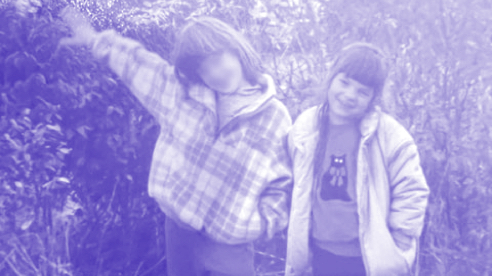
Sisters
Share this episodeSEASON 01 | EPISODE 01SistersWe meet accomplished novelist and loving mother Andrea Dunlop as she embarks on a journey to understand the series of events that tore her family apart. We learn that her older sister has been investigated twice...
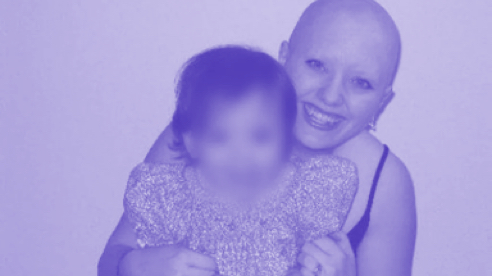
Who is Hope?
Share this episodeSEASON 01 | EPISODE 02Who is Hope?We delve deeper into the story of Hope Ybarra, a young mother whose family discovers she’s been faking her eight-year-long battle with terminal cancer and begins to suspect her own health isn’t all she’s...
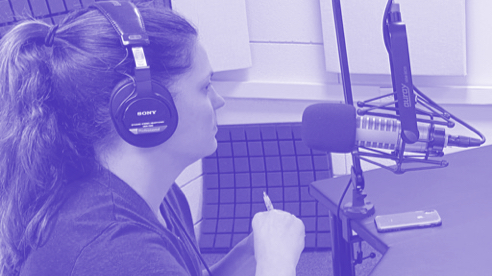
What’s in the Water in Tarrant County?
Share this episodeSEASON 01 | EPISODE 03What’s in the Water in Tarrant County Andrea speaks to Deanna Boyd, the crime reporter who broke the Hope Ybarra case and discovers that Hope's was one of many Munchausen By Proxy cases in Tarrant County that Deanna...
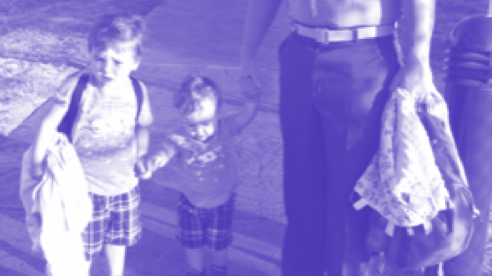
Nobody Would Believe Me
Share this episodeSEASON 01 | EPISODE 04Nobody Would Believe MeAs we learn from Detective Mike Weber, the father in a Munchausen by Proxy case can be the most important ally--or the biggest obstacle--in protecting child victims from abuse. Andrea gets...
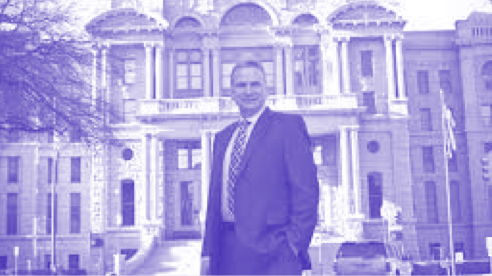
Nobody Would Believe Me (Part Two)
Share this episodeSEASON 01 | EPISODE 05Nobody Would Believe Me (Part 2)As we learn from Detective Mike Weber, the father in a Munchausen by Proxy case can be the most important ally--or the biggest obstacle--in protecting child victims from abuse. In part...
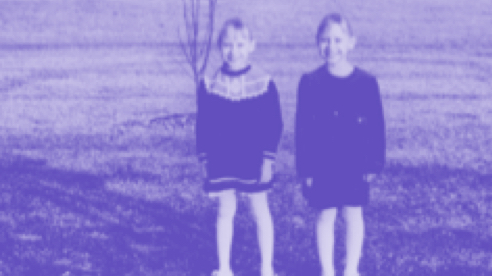
The Blast Zone
Share this episodeSEASON 01 | EPISODE 06The Blast ZoneAs Andrea contemplates what the future looks like for survivors of Munchausen by Proxy, she gets an unexpected message from two young women who’ve lived it. After appearing with Marc Feldman on a podcast,...
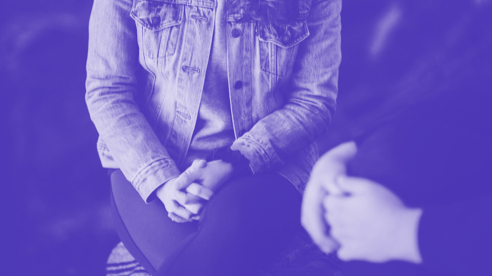
Can They Be Saved?
Share this episodeSEASON 01 | EPISODE 07Can They Be Saved?Andrea delves deep into her questions around the psychopathology of Munchausen by Proxy perpetrators. Floored by the similarities in the many cases she’s researched: she talks to two of the world's...
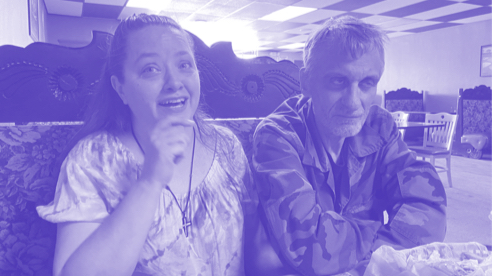
There’s Hope
Share this episodeSEASON 01 | EPISODE 08There's HopeAndrea has made an intense connection with Hope Ybarra's family, and asked experts, doctors, and the detective so many of her burning questions about Munchausen by Proxy. But she's become increasingly...
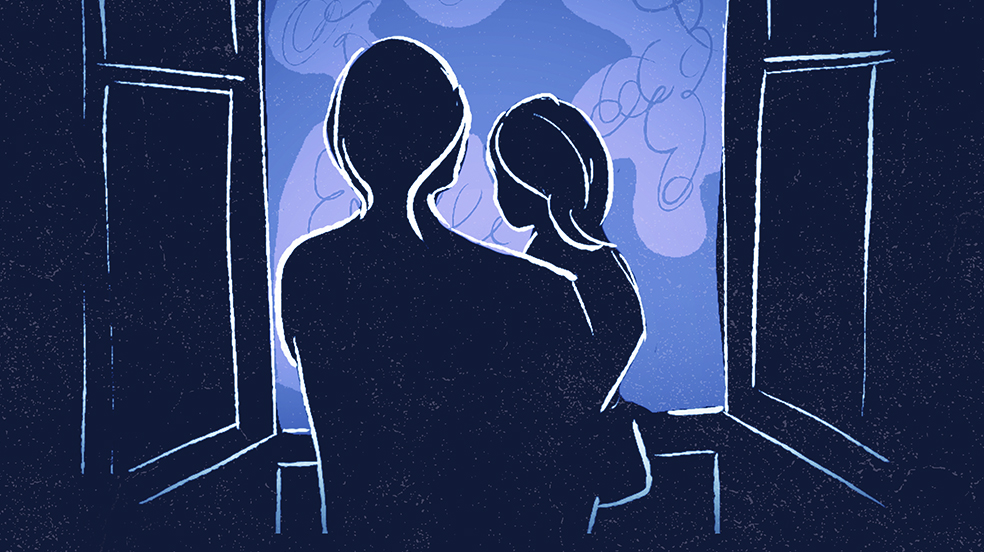
Blunt Force Instrument
Share this episodeSEASON 02 | EPISODE 01Blunt Force InstrumentMeet Andrea Dunlop, accomplished novelist and mother, as she embarks on a journey to understand the series of events that tore her family apart. In the first episode, we learn how Andrea first...

What Do We Do About Brittany?
Share this episodeSEASON 02 | EPISODE 02What Do We Do About Brittany?Heather Harris was one of many friends who was concerned about Brittany’s desperate need for attention for her daughter’s medical issues, and her inconsistent reports about Alyssa’s eating...

Where There’s Smoke
Share this episodeSEASON 02 | EPISODE 03Where There's SmokeDetective Mike Weber dives into the digital rabbit hole of Brittany’s online activity and makes a discovery so shocking it turns his investigation on its head and reveals the depths of depravity...

All In
Share this episodeSEASON 02 | EPISODE 04All InIn this season of Nobody Should Believe Me, we've heard from Sheriff Bill and Laura Waybourn about their concern for Alyssa- who was a distant family member of theirs. Now, we take some time to get to know this...

Tangled
Share this episodeSEASON 02 | EPISODE 05TangledWe hear more about Alyssa’s turbulent journey to become a Waybourn, as the family fights through a system that doesn’t know how to deal with medical child abuse. The Waybourns face the daunting task of...

The Trial
Share this episodeSEASON 02 | EPISODE 06The TrialYears after being separated from her daughter Alyssa, the Brittany Phillips case finally heads to trial. Dawn Ferguson, the prosecutor on the case elucidates the challenges of convincing a jury that a mother...

Megan
Share this episodeSEASON 02 | EPISODE 07MeganIn the wake of obtaining shocking public records about her sister’s case, host Andrea Dunlop decides to divulge the details of the second investigation into her sister, Megan Carter. Seated alongside Detective...

Only the Beginning
Share this episodeSEASON 02 | EPISODE 08Only the BeginningIn the aftermath of Brittany Philips' conviction, Alyssa faces a daunting new reality: the path to recovery. The long-term physical and psychological effects of Munchausen by Proxy abuse cast a long...

Everything Everything Everything
Share this episodeSEASON 02 | EPISODE 10Everything Everything EverythingIn the finale of Season 2, we finally hear from the person at the center of our story: Alyssa Waybourn. Despite the immense challenges she has faced, Alyssa shines as a beacon of...
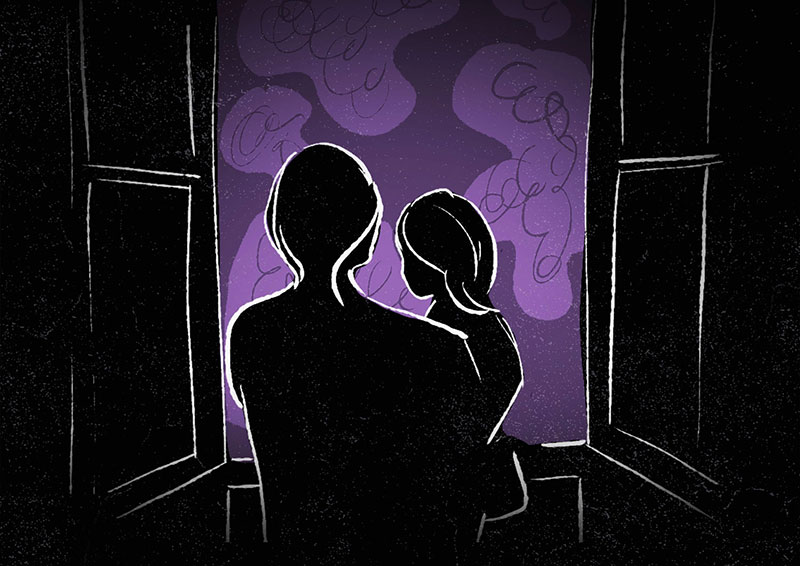
Special Report: Watching Take Care of Maya (re-release)
Share this episodeSEASON 03 | EPISODE 01Special Report: Watching Take Care of Maya (re-release) Warning: This content includes references to suicide and child abuse. If you or someone you know is having thoughts of suicide, help is available. Call or text...

Shelter
Share this episodeSEASON 03 | EPISODE 02Shelter As the Maya Kowalski case heads to trial, we dig into the massive trove of documents about this case and begin to unpack what we know about what really happened during Maya Kowalski’s fateful stay at Johns...

In a Heartbeat
Share this episodeSEASON 03 | EPISODE 03In a HeartbeatIn our third episode, we look at a central piece of the story that was left unfinished at the time of Beata Kowalski’s death: the police investigation into her for medical child abuse. Along with...

Retaliation
Share this episodeSEASON 03 | EPISODE 04RetaliationNote: This episode contains sensitive content related to child abuse and suicide. Listener discretion is advised. Beata Kowalski’s tragic death by suicide in January of 2016 is at the center of the $220...

The Women
Share this episodeSEASON 03 | EPISODE 05The WomenIn the flattened version of the Maya Kowalski story that has dominated the headlines, Beata Kowalski is a mother who fell prey to age-old biases against women. This story attaches itself to the well-documented...

The Believers Part 1
Share this episodeSEASON 03 | EPISODE 06The Believers Part 1In today’s episode, Andrea seeks an outside perspective on the controversial Maya Kowalski case. Laura Richards, host of Crime Analyst and cohost of the Real Crime Profile podcast, joins Andrea to...

The Believers Part 2
Share this episodeSEASON 03 | EPISODE 07The Believers Part 2As the Kowalski v Johns Hopkins All Childrens trial barrels forward, new information comes to light each day about what really happened to Maya Kowalski during her time in the hospital. In part 2 of...

Trial of the Century
Share this episodeSEASON 03 | EPISODE 08Trial of the CenturyWith a verdict in the case days away, host Andrea Dunlop unpacks some of what’s happened so far in the Kowalski v Johns Hopkins All Childrens trial with lawyer and trial consultant Jonathan Leach....

The Verdict
Share this episodeSEASON 03 | EPISODE 09The VerdictAndrea and special guest Bex (aka our Florida pediatrcian friend) process the shocking verdict in the Maya Kowalski trial. After 9 weeks of testimony, the jury awarded the Kowalski family nearly $300 million...

The Verdict Part 2
Share this episodeSEASON 03 | EPISODE 10The Verdict Part 2Andrea checks in with lawyer and trial consultant Jonathan Leach hours after the Kowalski verdict comes down. They talk about the judge’s decision to disallow testimony from the defense on medical...

Star Witness
Share this episodeSEASON 03 | EPISODE 11Star WitnessAs we continue to process the far-reaching implications of the shocking verdict in the Kowalski case, we take a closer look at Maya Kowalski’s testimony and what we know about her. She’s emerged as a...

System Override
Share this episodeSEASON 03 | EPISODE 12System OverrideWith the jury's stunning $242 million verdict in favor of the Kowalski family, host Andrea Dunlop looks at why this case has struck such a nerve on both sides of the political spectrum. She examines why...

What Now?
Share this episodeSEASON 03 | EPISODE 13What Now?Just when we thought the endless saga of Kowalski v Johns Hopkins All Childrens was over...it turns out it might only be beginning. In this episode, lead attorney for the Johns Hopkins All Childrens defense...

Media Circus
Share this episodeSEASON 03 | EPISODE 14Media CircusThis week Andrea examines how the harrowing and complex story of the Maya Kowalski case turned into a pop culture moment, and spread dangerous misinformation in the process. We continue our conversation...

The Trials of Dr. Sally Smith (Season Finale: Part 1)
Share this episodeSEASON 03 | EPISODE 15The Trials of Dr. Sally Smith (Season Finale: Part 1)In an exclusive interview with Dr. Sally Smith, host Andrea Dunlop travels to Florida to speak to the embattled child abuse pediatrician about her life and work and...

Bad Press (Season Finale: Part 2)
Share this episodeSEASON 03 | EPISODE 16Bad Press (Season Finale: Part 2)In the second part of our exclusive interview with Dr. Sally Smith, we discuss how the media coverage of her reached a fever pitch and turned her life and career upside down. We explore...

Dangerous Women (Season Finale: Part 3)
Share this episodeSEASON 03 | EPISODE 17Dangerous Women (Season Finale: Part 3)In the third and final installment of our exclusive interview with Dr. Sally Smith, she shares her side of what happened in the Maya Kowalski case, revealing how perilous Maya’s...

What Jack Knew
Share this episodeSEASON 03 | EPISODE 18What Jack KnewAs we prepare to launch Season Four next month, we’re revisiting the subject of Season Three—the landmark Kowalski v. Johns Hopkins All Children’s verdict, in which a jury awarded Jack Kowalski more than...

What Happened to Beata?
Share this episodeSEASON 03 | EPISODE 19What Happened to Beata?This week's episode delves into the intricate details surrounding Beata Kowalski's death, which was central to the Kowalski's lawsuit against Johns Hopkins All Children's, as well as the...

Kowalski Case Update with Ethen Shapiro
Share this episodeSEASON 03 | EPISODE 20 Kowalski Case Update with Ethen Shapiro Join Andrea as she delves back into the ongoing legal battle of Kowalski v. Johns Hopkins All Children's Hospital, with Ethen Shapiro, the lead defense attorney for Johns...
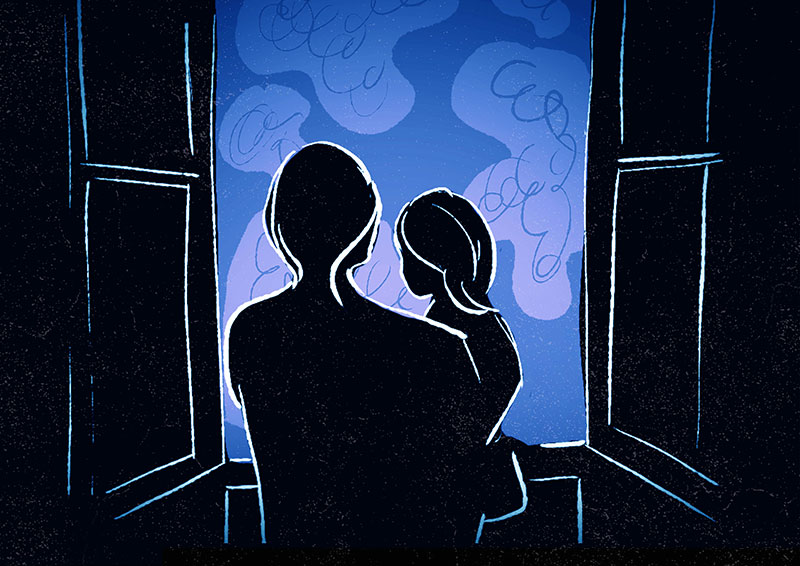
Welcome to Hutchinson
Share this episodeSEASON 04 | EPISODE 01 Welcome to Hutchinson Welcome to Season 4 of Nobody Should Believe Me! This season we are following the story of Jordyn Hope as they unravel the secrets of their childhood. After revelations that they were abused as a...

“I Brought You Into This World I Can Take You Out”
Share this episodeSEASON 04 | EPISODE 02 “I Brought You Into This World I Can Take You Out” While visiting their hometown, Jo reconnects with their older sister, Crystal, to have the deeply honest and heart-wrenching conversation their mother never wanted...

Not Without My Daughter
Share this episodeSEASON 04 | EPISODE 03 Not Without My Daughter As we dig deeper into Jo’s history, we tackle one of the many confusing aspects of their childhood: their paternity. We navigate the many twists and turns around the father figures in Jo’s...


